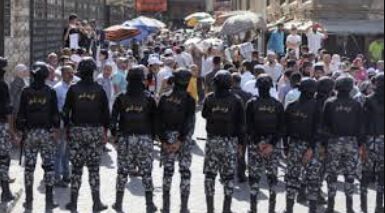Pivotal Cairo Peace Summit on Gaza Crisis Leaves Key Players Skeptical
Egypt hosts a summit on the Gaza crisis, but the absence of key players dampens expectations. The summit aims to address recent developments and the future of the Palestinian issue.
Egypt is hosting a summit on the Gaza crisis amidst growing concerns of a wider Middle East war. However, the absence of a top official from Israel's main ally, the U.S., and other leaders has dampened expectations for what the summit can achieve. The Cairo Peace Summit, hastily convened while the conflict still rages, will bring together several Arab and European heads of state and government, along with foreign ministers. The summit takes place as Israel prepares for a ground assault on Gaza following the deadly attack by Hamas on October 7th, which claimed the lives of 1,400 people. The Israeli counteroffensive has resulted in over 4,100 Palestinian casualties, exacerbating the humanitarian crisis in Gaza.
We have been invited to participate in the Cairo Summit for Peace taking place tomorrow to discuss the ongoing conflict between #Israel and #Palestine. pic.twitter.com/q5KSZ3xJat
— Cyril Ramaphosa 🇿🇦 (@CyrilRamaphosa) October 20, 2023
The absence of key players such as the U.S., China, and Russia raises questions about the effectiveness of the summit. Egypt has provided little information about the goals and objectives of the gathering, apart from a statement by the Egyptian presidency on October 15th, which mentioned that the summit would address recent developments in the Gaza crisis and the future of the Palestinian issue. The list of participants is still uncertain and subject to change. Leaders from Germany and the United Kingdom have confirmed they will not attend, while there is no official confirmation regarding the attendance of French President Emmanuel Macron.
Discussions have taken place concerning a common summit declaration, but differences have hindered progress, making it unclear if a final text will be issued. Arab countries have expressed their anger towards Israel's intensive bombardment and blockade of Gaza, a territory inhabited by 2.3 million people. Clashes on Israel's border with Lebanon and attempted attacks from Iranian-backed forces have fueled concerns about potential spillover effects, particularly if a ground offensive results in further bloodshed. Additionally, the rise of anti-Islamic and anti-Semitic harassment worldwide raises security concerns in many countries.
European countries have struggled to reach a unified approach to the Gaza crisis, beyond condemning Hamas's initial attack. Egypt has been attempting to deliver humanitarian aid through the Rafah crossing, the sole access point not under Israeli control, but aid has accumulated on the Egyptian side. Egypt's President Abdel Fattah al-Sisi emphasized that millions of Egyptians would oppose any forced displacement of Palestinians into Sinai, asserting that such action would only lead to the creation of a base for attacks against Israel. This stance reflects Arab fears of a repetition of the mass displacement of Palestinians during the war surrounding Israel's establishment in 1948.
Both King Abdullah of Jordan and President al-Sisi voiced their opposition to the forcible displacement of Palestinians, and accused Israel of imposing collective punishment on the residents of Gaza through its bombing campaign. Israeli officials, including Prime Minister Benjamin Netanyahu, have vowed to obliterate Hamas as retribution for the initial attack. However, there is no clear endgame or plan for governing the Palestinian enclave after the conflict, leaving Western officials concerned about the lack of an exit strategy. The Cairo summit is scheduled to commence at 10 am on Saturday, opened by the Egyptian president.




